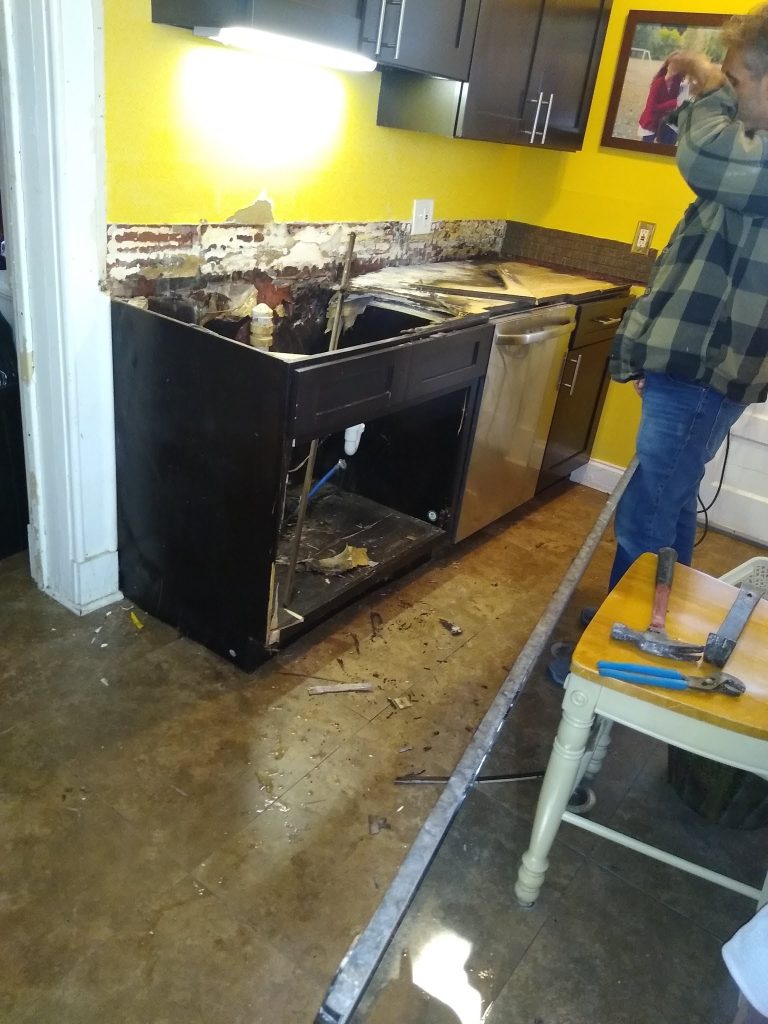A leaky kitchen sink can be a frustrating and costly problem. Water damage can lead to mold growth, structural damage, and expensive repairs. If you notice a leak, it is essential to identify the cause as soon as possible to prevent further damage. Here are five likely causes of a kitchen sink leak.
1. Faulty Sink Installation
One of the most common causes of a kitchen sink leak is a faulty installation. If the sink was not installed correctly, it can cause leaks over time. Common installation mistakes include improper sealing, incorrect plumbing connections, and loose nuts and bolts. An experienced plumber can help identify and fix these installation issues.
2. Damaged Sink Components
Over time, sink components like the faucet, drain, and pipes can wear down or become damaged. The following components can cause leaks if they are not functioning correctly:
- Faucet: A loose or worn faucet can cause water to leak around the base or handle. The O-ring, cartridge, or valve seat may need to be replaced.
- Drain: A clogged or damaged drain can cause water to leak from the sink. The drain may need to be cleaned or replaced.
- Pipes: A leak in the pipes under the sink can cause water to leak onto the cabinet floor. The pipes may need to be tightened or replaced.
3. Cracked Sink
Another common cause of a kitchen sink leak is a cracked sink. Over time, the sink can crack due to wear and tear, dropped objects, or extreme temperatures. Cracks can form around the edges of the sink, the drain, or the bottom of the sink. A cracked sink will need to be replaced to prevent further leaks.
4. Water Pressure
High water pressure can cause leaks in the kitchen sink. If the water pressure is too high, it can cause the plumbing to become damaged, which can result in leaks. A plumber can install a pressure regulator to regulate the water pressure and prevent future leaks.
5. Clogged or Damaged Garbage Disposal
If you have a garbage disposal installed under your kitchen sink, it can cause leaks if it becomes clogged or damaged. A clogged or damaged disposal can cause water to leak from the sink or back up into the dishwasher. To prevent leaks, make sure to use the disposal correctly and have it serviced regularly.
Preventing Kitchen Sink Leaks
Preventing kitchen sink leaks is essential to avoid water damage and costly repairs. Here are some tips to help prevent kitchen sink leaks:
- Hire a licensed, bonded, insured, professional plumber to install or repair your sink correctly.
- Regularly inspect the sink components like the faucet, drain, and pipes for damage or wear and tear.
- Avoid pouring grease, oil, or fat down the drain.
- Use a drain strainer to prevent food particles from clogging the drain.
- Do not put hard objects like bones or eggshells down the garbage disposal.
- Run cold water for a few seconds before and after using the garbage disposal to help flush debris.
In summary, a leaky kitchen sink can be caused by a faulty installation, damaged sink components, a cracked sink, high water pressure, or a clogged or damaged garbage disposal. If you notice a leak, it is essential to identify the cause and have it fixed as soon as possible to prevent further damage. By following preventative measures like hiring a professional plumber and properly maintaining your sink components, you can help prevent future leaks and water damage.


